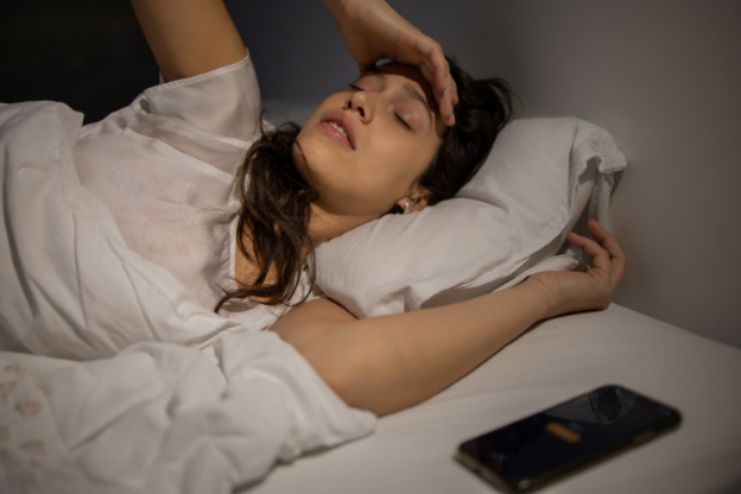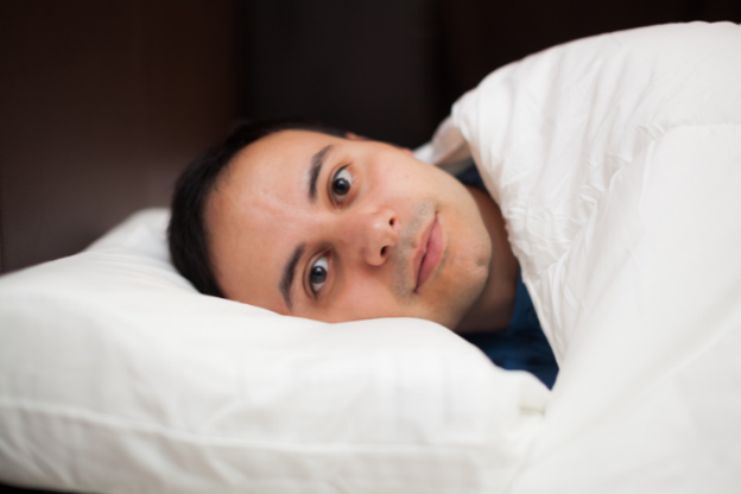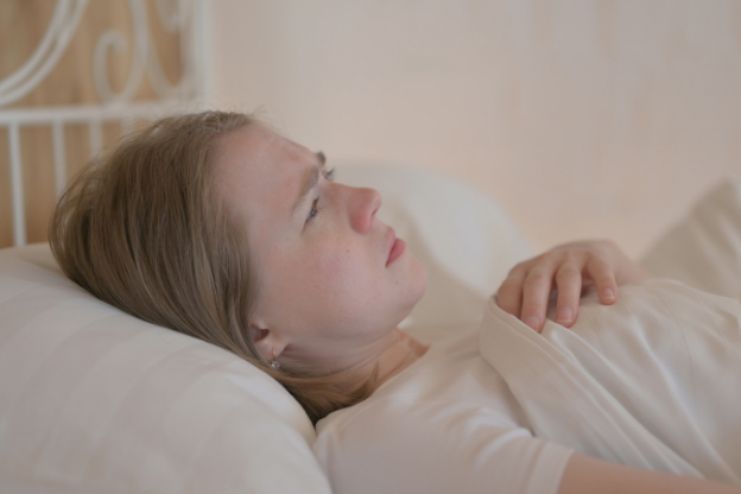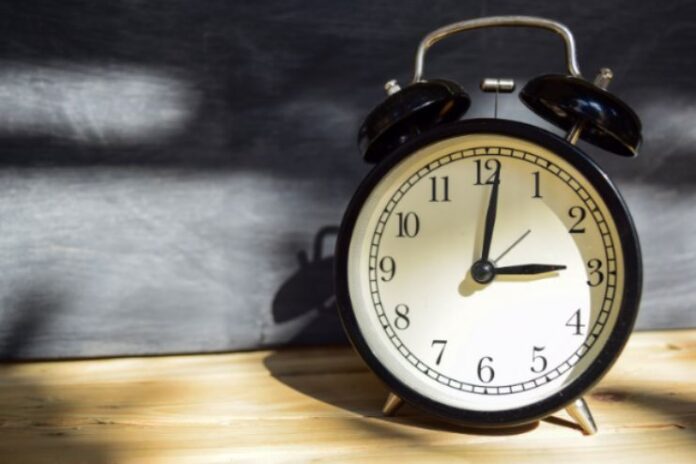Affiliate Disclaimer
Some links in this article are affiliate links. We may earn a small commission if you make a purchase through these links, at no extra cost to you. We only recommend products we find useful to our readersFew people hit the sack and wake up only at the alarm snooze in the morning. On the other hand, plenty of others wake up in the middle of the night, leaving them with disturbed sleep for the rest of the night. Are you among the second category of people who wake up in their sleep at midnight? And have you ever wondered, “Why do I wake up at 3 AM?” you’re not alone. Research shows that as many as 35% of adults report waking up at least three times a week in the middle of the night.
You should not easily pass this phenomenon off as a quirk of your sleep cycle. You must pay close attention to it, as it combines natural biology, environmental impact, and lifestyle factors.
In this article, we’ll explain the science behind early-morning awakenings and the detailed reasons for this condition. We’ll also provide easy and effective tips and practical solutions for regaining your precious deep sleep.
The Science Behind Waking Up at 3 AM

To understand why you wake up at 3 AM every night, the sleep cycle must be studied. Sleep is not a uniform state. It cycles through various stages—light sleep, deep sleep, and REM sleep. As the night progresses, our body naturally shifts into lighter sleep stages, which often causes us to wake up during the early hours, particularly around 3 AM. One study showed that about 30% of those with insomnia experience significant sleep disruptions and wake up during this vulnerable period.
It is also to be noted that the circadian rhythm, which is your internal body clock, may be impacted by stress, irregular sleep patterns, or other reasons, causing a predictable midnight awakening.
Read More: 8 Smart Home Devices To Enhance Your Sleep.
Broadly, the causes of 3 AM wake-ups can be divided into hormonal disruptions and environmental factors.
The Role of Hormones in Sleep Disruptions
As mentioned earlier, external and internal factors play a major role in regulating sleep. One reason is hormonal fluctuations.
- Cortisol: The stress hormone cortisol typically dips at night. However, increased stress or irregular sleep patterns can cause a spike during the early hours, leading to premature awakening.
- Melatonin: This hormone signals your body to wind down and prepare for sleep. Excessive exposure to blue light from screens or inconsistent bedtime routines can disrupt melatonin production, shift your internal clock, and contribute to those 3 AM wake-ups.
Hormonal changes can make your sleep disturbed, especially in women. It is observed that women, particularly during menopause, experience hormonal fluctuations that lead to symptoms such as hot flashes and night sweats. This makes them prone to waking up at 3 AM, causing a significant sleep disturbance.
How Your Sleep Environment Affects 3 AM Wake-Ups

Noise, temperature fluctuations, and light exposure can significantly impact sleep and cause sleep disruptions. For example, urban noise pollution is linked to a 30% increase in waking up at 3 AM. Even low levels of light can trigger a shift from deep to lighter sleep stages.
Creating an optimal sleep environment is key to improving sleep quality. Here are a few ways your sleep environment is leading to those 3 AM wake-ups:
- Light: Even subtle light exposure from electronic devices or streetlights can impact Melatonin production. Reducing ambient light can significantly improve sleep quality.
- Temperature: Besides light, maintaining a cool, comfortable room, around 65°F supports the body’s natural thermoregulation. When you sleep at an imbalanced room temperature, it can wake you up at odd hours throughout the night.
- Noise: When you try to go into a deep sleep and are disturbed by continuous background noise, it leads to nighttime wake-ups. The noises, whether from traffic or household activity, can break the continuity of deep sleep.
- Screen Exposure: Screen time just before bed can be a major reason you wake up at 3 AM in the night. The blue light emitted by devices disrupts the natural release of melatonin. More experts today are recommending going screen-free at least an hour before bed to help ensure a deeper, more restful sleep.
Read More: Digital Detox: 6 Steps To Healthy Screen Habits For Entire Family.
Other Common Causes of 3 AM Wake-Ups

Understanding the other causes behind waking up at 3 AM every night is the first step towards addressing the issue. Here are a few common factors that can contribute to those 3 AM wake-ups:
- Stress and Anxiety: When your thoughts become overpowering and overactive, either from work pressures or personal tensions, it can lead to a sleep cycle disruption. Overthinking or taking excessive stress can increase your stress hormone cortisol levels during the night. Studies suggest that approximately 40% of adults with insomnia also have a diagnosable psychiatric disorder, most often depression. Depression or anxiety may also be a result as well as a risk factor for disturbed sleep.
- Blood Sugar Fluctuations: Nutrition during the day, and most particularly close to bedtime, is crucial to maintaining good sleep. If you wish to improve sleep quality, make sure that the blood sugar levels before you hit the bed are controlled. An unstable blood sugar level, particularly after a heavy or uneven dinner, may cause you to wake up at odd hours in the night, like around 3 AM.
- Hydration and Bathroom Breaks: Consuming excessive fluids or caffeine later in the day often leads to nocturia, which is nighttime urination. The majority of adults report nocturia, which interrupts the natural sleep cycle.
Practical Solutions to Stay Asleep Throughout The Night
Now that we know the causes of night awakening, here are a few practical tips to combat this, which will significantly help you. Here are actionable sleep tips for achieving an improved quality of sleep:
- Consistent Sleep Schedule: Create and stick to the same bedtime and wake-up time daily to help regulate your circadian rhythm. This helps with circadian rhythm and helps with discipline and focus in life. You can have sufficient time for other productive activities with a proper time scheduled for sleep and waking up.
- Create a Relaxing Bedtime Routine: Create a calming bedtime routine and engage in calming activities like reading, meditation, or gentle yoga. This lowers stress and prepares your body for sleep.
- Optimize Your Sleep Environment: You can try using blackout curtains to eliminate disruptive light and maintain a comfortable room temperature. You can also consider a white noise machine to drown out external disturbances. Invest in good-quality quilts, bedding, and pillows to get perfect uninterrupted sleep.
Read More: 7 Best Hypoallergic Pillows For A Healthier Sleep
- Monitor Diet and Hydration: Avoid heavy meals, caffeine, and alcohol consumption close to bedtime. If you feel an urge to hydrate, opt for a small amount of water early in the evening.
- Limit Screen Time: As mentioned earlier, excessive screen time right before bedtime can wake you up at 3 AM. You must reduce exposure to electronic devices at least one hour before bed to promote natural melatonin production.
- Practice Relaxation Techniques: To improve sleep quality, practice techniques like deep breathing, mindfulness, meditation, or progressive muscle relaxation. You can even take a warm bath to ease your mind and improve your sleep quality.
Read More: Restorative Sleep Solutions: 5 White Noise Machines For Tranquil Nights And Refreshed Mornings.
When to See a Doctor
When you wake up at 3 AM, occasionally, it is shared. However, constant sleep interruptions may signal an underlying health condition. Consider consulting a healthcare professional if you experience:
- Chronic Insomnia: After waking up at 3 AM, if you take more than 30 minutes to fall back asleep after waking.
- Symptoms of Sleep Apnea: If you experience sleep apnea symptoms such as loud snoring, gasping, or choking during sleep.
- Persistent Mental Health Concerns: Mental health conditions such as chronic anxiety or depression can significantly interfere with your sleep cycle.
- Other Health Issues: Other health conditions, such as diabetes, hormonal imbalances, or chronic pain, might disrupt your sleep.
Healthcare professionals can help diagnose and address potential sleep disorders and suggest treatments ranging from behavioral therapies to medication adjustments. These treatments are effective as they are tailored to individual needs.
Conclusion

Waking up at 3 AM is familiar, yet needs to be addressed. This condition can make you fatigued the next day, as your sleep cycle is disturbed. However, it is often not simple and intertwines our sleep cycles, hormonal fluctuations, and environmental factors. The factors range from natural shifts into lighter sleep stages, irregular circadian rhythms, stress, diet, or external disturbances such as noise and light. To stress, dietary habits, and external disturbances like noise and light.
You must adopt a consistent sleep schedule, optimize your sleep environment, and address lifestyle factors, including stress management and dietary adjustments. With all these changes, you can significantly improve your sleep quality and reduce the likelihood of waking at 3 AM. Consulting a healthcare professional is recommended if these changes do not yield results. With a few easy and practical tips, you can reclaim your night’s sleep without interruptions!
This is your chance to break free from the 3 AM wake-up cycle and step into the next day re-energized!
References
- https://www.urologyhealth.org/urology-a-z/n/nocturia
- https://www.sleepfoundation.org/physical-health/sleep-and-overeating
- https://pmc.ncbi.nlm.nih.gov/articles/PMC1978319/
- https://www.sleepfoundation.org/physical-health/sleep-and-overeating
- https://pmc.ncbi.nlm.nih.gov/articles/PMC4608916/
- https://pmc.ncbi.nlm.nih.gov/articles/PMC2830306/
In this Article















